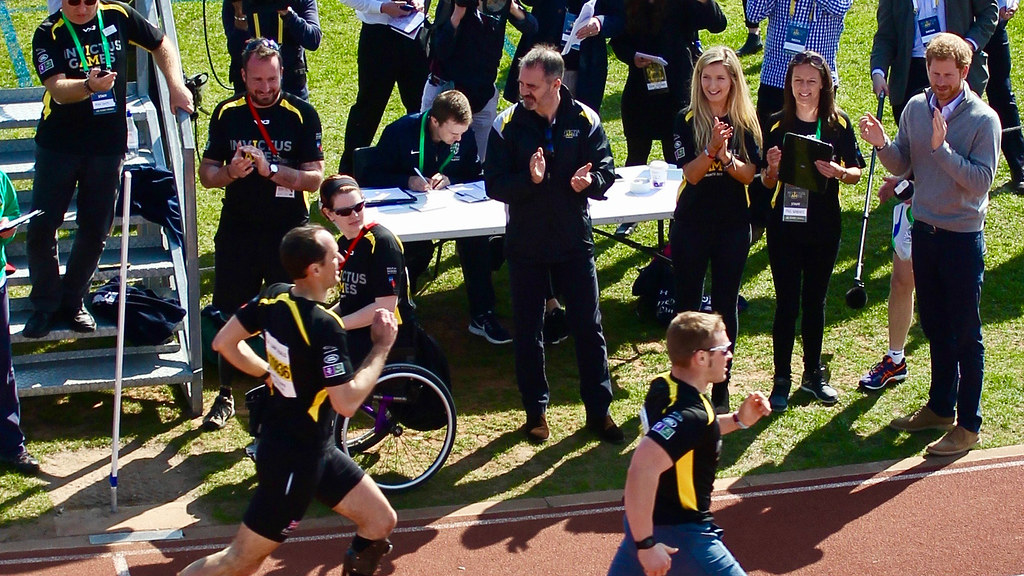This is the second consecutive year the University has hosted selection trials for the Invictus Games - the international, Paralympic-style multi-sport event, created by His Royal Highness, Prince Harry, in 2014.
Over the weekend, competitors, who are serving and veteran servicemen and women using sport as part of their recovery, will contest events in athletics, archery, wheelchair basketball, road cycling, power-lifting, indoor rowing, wheelchair rugby, swimming, sitting volleyball and wheelchair tennis.
Each are vying for a place in the UK squad for the 2017 Invictus Games, held later this year in Canada.
At the start of the three-day selection process, University Vice-President (Implementation) Steve Egan CBE said: “This is a truly inspirational event for everyone competing and for spectators alike. We are delighted to welcome to our campus all Invictus hopefuls and His Royal Highness, Prince Harry, for this weekend’s selection trials.
“The spirit of these Games really aligns so well with a number of our own research strengths and this is an excellent opportunity to showcase not only our world-class sporting facilities but also the ways in which our sport, health and exercise science work is being applied across sport and disability settings.
“From the whole University community to all athletes competing, we wish you every success.”
Researchers from the University’s Department for Health are involved in projects relating to disability sport as well as rehabilitation for military personnel including a new collaboration with Headley Court – the Defence Rehabilitation Centre for our Armed Forces.
This involves work through our new £5 million EPSRC-funded research Centre for the Analysis of Motion, Entertainment Research and Applications (CAMERA), with researchers from the Department of Computer Science. Working through CAMERA with the Ministry of Defence, the University is using motion capture technologies in new ways to develop assistive technologies including new prosthetics for amputees.
This project builds on work through the University’s unique DisAbility Sport and Health initiative through which scientists from the Department for Health are investigating the health and performance benefits of regular, physical activity across a range of disabilities.
During the visit to campus, Prince Harry also met researchers leading our rugby science work. This work is improving injury prevention for rugby players, including current projects to reduce injury risks from tackling.
If you found this interesting, you might also enjoy reading:

